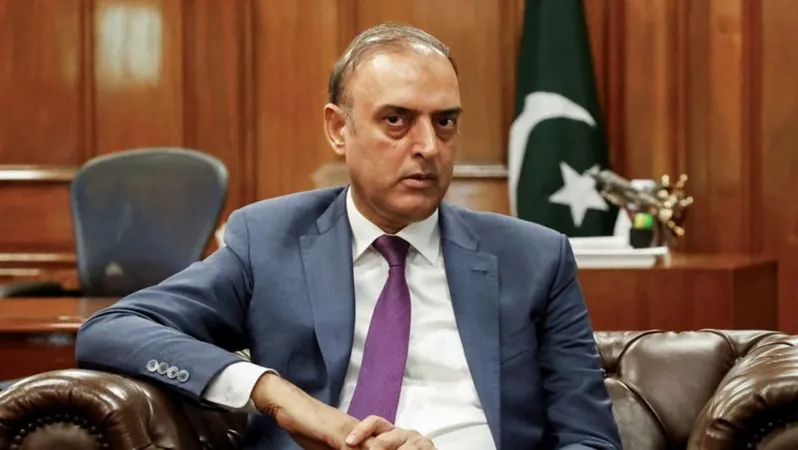
Pakistan's Central Bank Shocks Markets with Historic 250 Basis Point Rate Cut - What This Means for the Economy!
2024-11-04
Author: Li
Overview
In a bold move that has taken economists by surprise, Pakistan's central bank has slashed its key policy interest rate by an unprecedented 250 basis points, bringing it down to 15% as of Monday. This significant reduction comes amid ongoing efforts to rejuvenate a faltering economy after inflation plummeted dramatically. The decision surpassed expectations, with many analysts initially predicting a more modest cut of 200 basis points.
Inflation Rates and Economic Response
Recent data shows that inflation in Pakistan fell to 7.2% in October, a staggering decline from its peak of nearly 40% back in May 2023. The finance ministry is optimistic that inflation will continue to decrease, projecting a range of 5.5% to 6.5% for November. This trend has prompted the central bank to respond decisively, as it aims to foster economic growth and stability.
Historical Context of Rate Cuts
Since June, the State Bank of Pakistan (SBP) has implemented a series of rate cuts totaling 700 basis points. The central bank emphasized that such a monetary stance is essential to achieving price stability while keeping inflation within its target band of 5-7%. A spokesperson noted that these measures are crucial to supporting macroeconomic stability and encouraging sustainable growth.
International Relations and IMF Support
During a briefing following the announcement, Central Bank Governor Jameel Ahmad revealed that bilateral partner countries had assured the International Monetary Fund (IMF) they would continue rolling over debt as part of Islamabad's bailout program. This comes on the heels of the IMF approving a $7 billion facility in September, aimed at bolstering Pakistan’s struggling economy over a 37-month period.
Future Economic Projections
While the bank has not provided updated figures, it anticipates that average inflation for the fiscal year ending in June 2025 will be notably lower than its earlier forecast of 11.5% to 13.5%. GDP growth for the current fiscal year is also expected to surpass previous predictions, although it will remain within the targeted range of 2.5% to 3.5%.
Expert Opinions on Rate Cut
Financial experts have hailed the larger-than-anticipated cut as a signal of rapidly easing inflation. Adnan Sheikh, an assistant vice president at Pak Kuwait Investment Company, pointed out that this rate reduction is vital for sectors that have been grappling with underperformance, such as manufacturing, consumer goods, construction, and textiles. He emphasized that the decline in purchasing power due to prolonged inflation has left many citizens struggling.
Current Inflation Statistics
According to the latest statistics from the bureau, Pakistan's average inflation rate stands at 8.7% for the current fiscal year, with the IMF foreseeing an average rate of 9.5% for the year leading up to June. The recent October inflation reading of 7.2% was slightly above analysts' expectations, but the finance ministry remains hopeful for a decrease in the upcoming months, projecting inflation to cool down between 5.5% and 6.5% in November.
Looking Ahead: Risks and Considerations
Despite the optimistic outlook, some analysts caution that inflation might resurge in 2025 due to upcoming hikes in electricity prices and potential new taxes on retail, wholesale, and agricultural sectors, which are set to take effect in January 2025.
Conclusion
Stay tuned for more updates as Pakistan navigates through this transformative economic period!
 Brasil (PT)
Brasil (PT)
 Canada (EN)
Canada (EN)
 Chile (ES)
Chile (ES)
 España (ES)
España (ES)
 France (FR)
France (FR)
 Hong Kong (EN)
Hong Kong (EN)
 Italia (IT)
Italia (IT)
 日本 (JA)
日本 (JA)
 Magyarország (HU)
Magyarország (HU)
 Norge (NO)
Norge (NO)
 Polska (PL)
Polska (PL)
 Schweiz (DE)
Schweiz (DE)
 Singapore (EN)
Singapore (EN)
 Sverige (SV)
Sverige (SV)
 Suomi (FI)
Suomi (FI)
 Türkiye (TR)
Türkiye (TR)